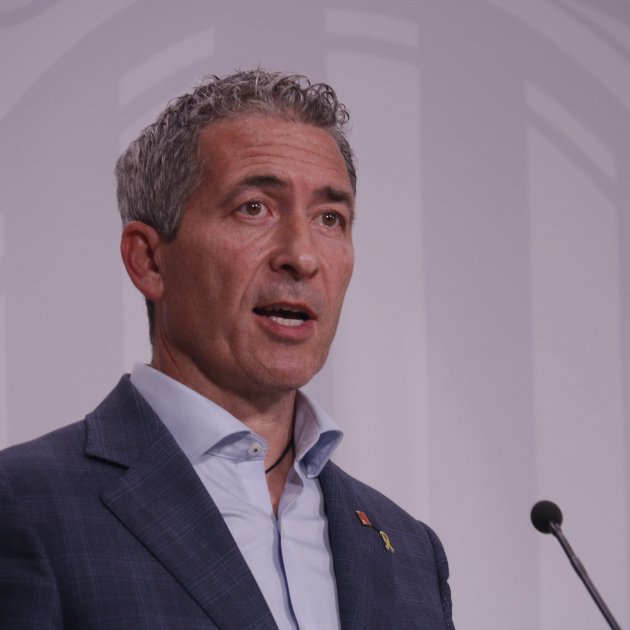The Catalan government is responding to the court decision imposing a quota of 25% Spanish in the schools of Catalonia by deploying a language regime decree, which, according to the education minister, Josep Gonzàlez-Cambray, will "strengthen the Catalan school's linguistic model and provide greater legal security for the educational projects of the school centres". The decree will not be completed, however, for a year and the deadline to apply the court sentence - imposing 25% of classes in Spanish in public-system schools all over Catalonia - is this Friday. The minister announced the new decree during a press conference following today's Catalan cabinet meeting, at which he rejected the moratorium on the application of the new school calendar which had been demanded by the school community consultative organ, the School Council of Catalonia. Meanwhile, the school community in Catalonia is preparing for another day of strike action on Wednesday, specifically in protest against the court imposition of 25% Spanish language in classrooms.
After today's cabinet meeting, the minister Cambray announced the start of a preliminary public consultation for the deployment project for the Catalan language regime. With this new regulatory framework, which must be developed under Title II of the Catalan Education Act, the government is responding to the ruling by the Catalan High Court (TSJC) which imposes 25% Spanish language in all classrooms. The minister explained that the consultation will last for a month, will be carried out from the Catalan government's transparency portal and that the application of the decree will then require twelve months. This will force the government to file appeals should the centres be required to apply the court's 25% ruling.
The minister, who referred to the survey published yesterday by the Catalan ombudsman, Rafael Ribó, confirming the decline in the use of Catalan in schools, has repeatedly refused to talk about language percentages under this new norm, stressing that the objective is to guarantee the mastery of Catalan and Spanish at the end of compulsory secondary education (ESO), and which, in turn, will mean taking into account the sociolinguistic reality of each school centre, a process which will achieve "more presence of Catalan in future years than there is at present."
Cambray did not specify how the measure would achieve these goals or how the legal security of the centres would be ensured under the new regime. But he did announce that the Catalan government will join the mobilization called for tomorrow against the 25% Spanish ruling, with an action outside in the doors of the Catalan Parliament in which the speaker, deputy speaker and ministers will be present. Meanwhile, there will be demonstrations at 12:30pm and again at 7pm in major Catalan centres to support the Catalan-immersion-based educational model.
No to delaying the school calendar change
Ahead of the request that the minister was to receive this afternoon by the School Council of Catalonia to wait for a year before applying the new school calendar - an issue which triggered the six days of strike this month by Catalan teachers - Cambray said that the department sees "no reason to justify a moratorium" as, in its view, there is agreement across the school community on the measures taken. The minister was positive about the fact that talks with the strike committee were starting today and said he was pleased with the return of the unions to negotiations. He played down the importance of petitions for his resignation and acknowledged the uneasiness of the educational community, but argued that he is responding to demands that originated many years ago. In fact, the minister attributed the teachers' discomfort to the education spending cuts that took place ten years ago.
